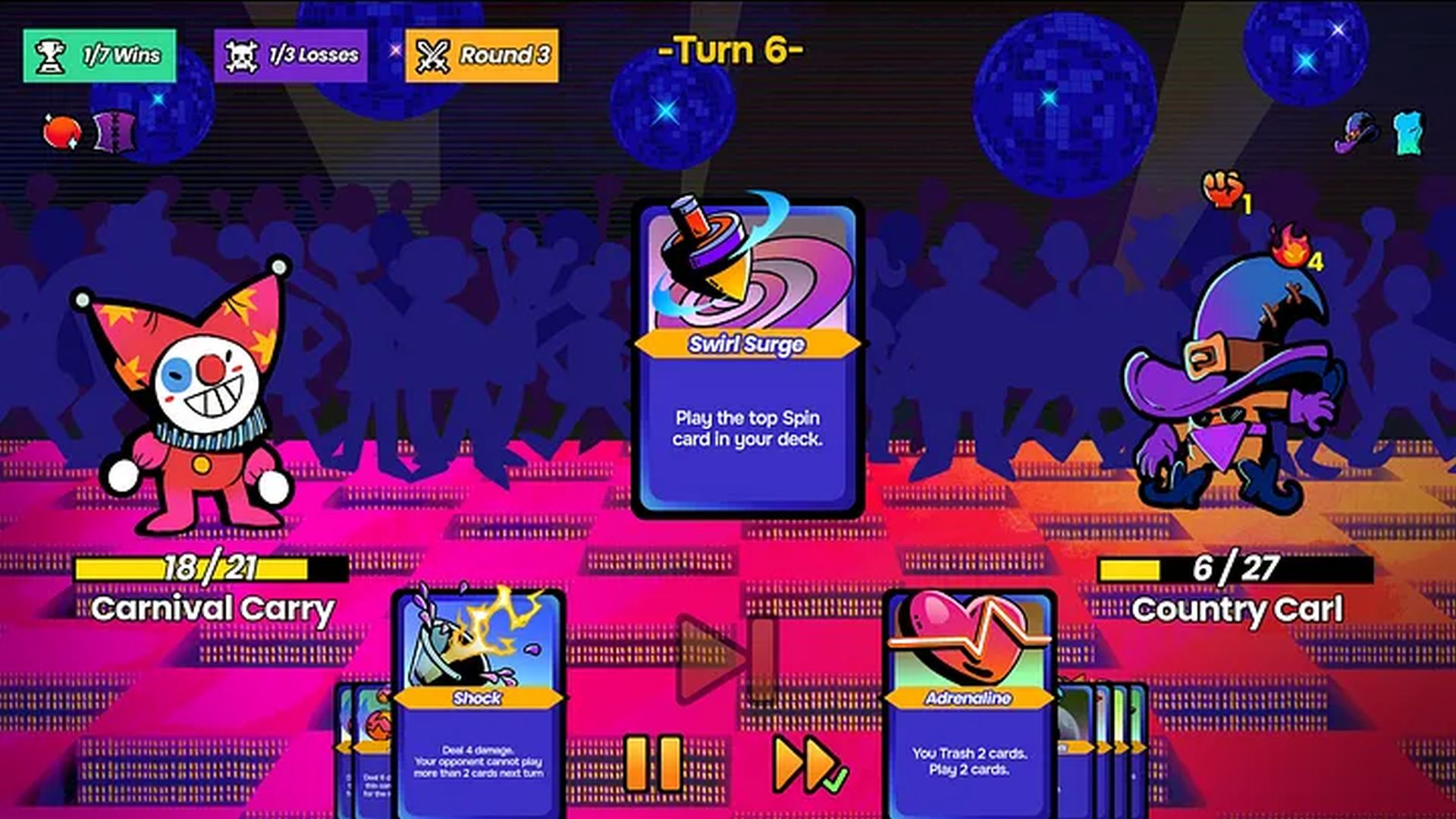
The developer of roguelike hit Slay the Spire has explained how it created its first new game in six years in just three weeks.
Last month, in the wake of game engine Unity's disastrous fee changes, Slay the Spire developer MegaCrit announced that it would be moving engines for its new game, despite having spent "an immense amount of time and effort" working in Unity. Now, in an attempt to get to grips with its new engine, Godot, MegaCrit has released its first new game in six years, a chaotic disco-themed autobattler called Dancing Duellists.
You can download Dancing Duelists for free, and I did exactly that last night. What I found was a game that was clearly born from MegaCrit's work on Slay the Spire, albeit it far faster-paced. It's a deckbuilding autobattler, in which cards play automatically until either you or your opponent reach one of multiple win conditions. I played my first run as a character who thrives on playing as many cards per turn as possible, reducing enemies to zero HP under a barrage of quick moves. I was eventually successful, but I did lose one of my three lives to a heal-spamming, saxophone-playing plant that hit its own win condition - 50 HP - faster than I could whittle it down.
From my limited experience, there's (understandably) less fine-tuning than in Slay the Spire. You have far less control over your deck, as you're forced to pick two cards at the end of each dancing duel, while many other deckbuilders allow you to decide whether or not you want to make any changes to your deck at all. Under the autoplay system, it's also difficult to get a sense of what's happening and why - complexity isn't much of an issue, but the speed at which Dancing Duelists played out meant that it was hard to learn the technicalities of each card.
Some of those issues have already been acknowledged by MegaCrit co-founder Casey Yano, who published a Medium blog post about the process of building Dancing Duelists. Explaining that the game was an attempt to get a sense of whether Godot would be the right engine for its new product, Yano outlined some of the engine's pros and cons, and said that the team thought the best way to be able to make a firm decision was to build a game in a two-week jam. Opting for a deckbuilder for familiarity's sake, MegaCrit did end up adding an extra week to the project.
There's a lot of technical information in the blog that I'm not best placed to analyze, but I did find Yano's comments about the success of Dancing Duelists interesting. They discuss random decks, ease of understanding, and a limited pool of cards to draw from. At the core of the latter issue is that "making this much content, balancing, and exploring these archetypes would be a massive undertaking," and that "while it's sad to not have a game realize its full potential, it's good to be pragmatic and not become overly attached to a ham we did to explore a game engine."
Yano doesn't appear to fully commit to Godot in the post, but it's clear that they're pleased with the fact that MegaCrit managed to build an entire game in three weeks in new software. Sadly, while Dancing Duelists shares some pretty core DNA with Slay the Spire, there's still little word on what the studio's next project will look like. Having poured countless hours into early access and full release of the studio's seminal roguelike across multiple platforms, I remain excited to see what they cook up, but after six years, it sounds like it might still be some distance away. Until then, you can try out Dancing Duelists for free via itch.io.
Sign up to the GamesRadar+ Newsletter
Weekly digests, tales from the communities you love, and more
Slay the Spire sits firmly on our list of the best roguelike games.

I'm GamesRadar's news editor, working with the team to deliver breaking news from across the industry. I started my journalistic career while getting my degree in English Literature at the University of Warwick, where I also worked as Games Editor on the student newspaper, The Boar. Since then, I've run the news sections at PCGamesN and Kotaku UK, and also regularly contributed to PC Gamer. As you might be able to tell, PC is my platform of choice, so you can regularly find me playing League of Legends or Steam's latest indie hit.


